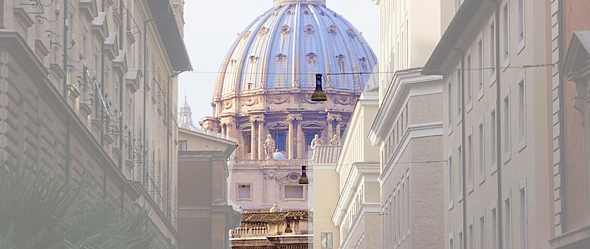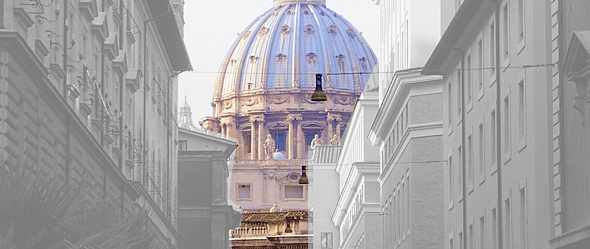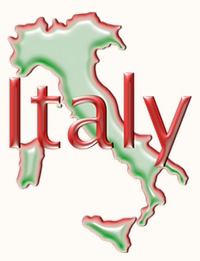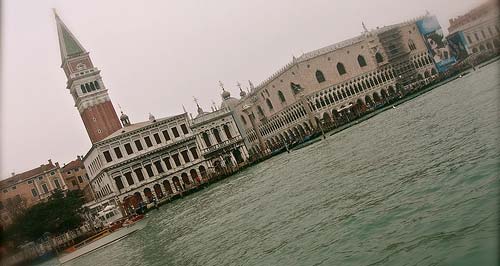On paper, Italy has no official state religion. In effect, though, Italy does have an official religion – Roman Catholicism. The headquarters of the Roman Catholic religion is not, technically, in Italy; Roman Catholic HQ is in the Vatican City in the very heart of Rome. Plenty, though by no means all, Italians feel that Roman Catholicism is as Italian as pasta.
In actual fact, the Vatican City is an independent state – a country within a country and is very similar to another one of Italy’s city states – San Marino.
Up until 1870, the Papacy controlled a huge swathe of Italy plus one or two other little outposts beyond the peninsula such as the Comtat Venaissin in southern France.
Today, the Papal State extends no further than the Vatican City.
The land area the Roman Catholic church now controls is minuscule compared to the past, but the influence the Roman Catholic church wields over contemporary Italy is still significant. While the Vatican no longer controls huge areas of land, it does have an immense property holding in Italy.
Papal News Daily
Hardly a day goes by without Italy’s television reporting what the Pope has said or what the Roman Catholic church is up to. Not only is Italy’s media fascinated by what goes on in the Vatican, many of its politicians maintain, to put it very mildly, close links to the Vatican. Being a good Catholic also seems to be a perquisite for certain jobs in Italy’s government and public sector.
Certain members of Silvio Berlusconi’s PdL party, such as Maurizio Lupi, Mario Mauro, and ex-culture minister, Rocco Buttiglione, are open supporters of the Vatican who belong to a Roman Catholic sect called Comunione e Liberazione – Communion and Liberation. They think of themselves as being good Catholics, despite being happy to be associated with Silvio Berlusconi who stands accused of having sex with an underage prostitute (and was convicted of such in 2013).
Politics Intertwined with Catholicism
The politics of Italy seem to be intertwined with the teachings of the Roman Catholic church and the policies of the Vatican, even if the Roman Catholic church tends to keep rather silent on issues such as corruption and organized crime. Religion lessons in Italy’s state schools reflect the teachings of the Roman Catholic church.
If the Vatican considers an aspect of the Italian government’s policies disagreeable, it will voice an opinion and friendly Italian politicians will leap to its defense and lend their unquestioning support up to and including blocking legislation which is seen to go against the Church’s teachings.

Italy had a heck of a battle to introduce more moderate divorce and separation laws. Right to life laws in Italy do not exist – largely as a result of pressure from the Vatican. Basically, any proposal for a law in Italy which is seen to go against the doctrines of the Vatican is destined to face an uphill battle. Remember that, on paper, Italy has no official religion.
Taxing the Church, Maybe
One such proposal for a law which the Vatican is finding hard to digest at present is a call for church premises in Italy to be subject to a new property tax. Now, Italy has no intention of taxing places of worship, but many Italians are rather unhappy that the Vatican has been exploiting its tax exempt status to set up profitable commercial enterprises, such as hotels and restaurants, and pay no tax on the properties in which they are located.
Tax, as any business owner knows, is an overhead: it affects the end price consumers pay. Lower taxes mean lower prices. In Italy hotels run by the Roman Catholic church; and we are not talking second rate affairs, but some ‘church’ hotels which just about fall into the 5 star hotel category; enjoy exemption from property tax. This means that these Vatican-run hotels can charge lower prices than their privately run equivalents. As a result, non-church owned establishments simply cannot compete.

Stop reading, start speaking
Stop translating in your head and start speaking Italian for real with the only audio course that prompt you to speak.
Finally, and after much huffing and puffing from supporters of the Vatican within Italy’s government, there are moves afoot to require the Roman Catholic church to pay its property tax dues. The moves have been, unsurprisingly, hotly contested by Roman Catholic factions within Italy’s government. The question over whether or not the Roman Catholic church has been coming to a head recently and it does look as if the church may end up having to pay the property tax. Or at least that is the situation today.
News in Italy on the taxing of church premises issue has been, to say the least, confusing. One day the Roman Catholic church is to pay, the next, it is not, then it is, then it isn’t, and so on.
Publicly, the Roman Catholic church is somewhat mute on the issue, but privately, the impression is that Vatican politicians, read Cardinals, have been liaising with friendly Italian politicians in an attempt to keep commercial premises owned by the Roman Catholic church tax free.
Vatican Influence
The influence the Vatican – a separate country, remember – has over Italy does seem untoward, to put it mildly. It has to be said that the pulling power of the Vatican does generate a vast income for Rome annually. Tourists and pilgrims flock to catch a glimpse of the Pope, or admire the wonders of the Sistine Chapel at €15 a visit and stay in the city’s many hotels.
Despite the income for Italy and itself the Vatican generates, to put the influence the Vatican exerts over Italy into some perspective, imagine if French politicians were working with certain German politicians to bring about changes in Germany to benefit France. If such a relationship were to be brought to light, a storm would blow up and the German politicians involved would very likely be accused of betraying their country.
Yet few in Italy seem to consider the Italian politicians who collaborate with the Vatican are doing something which might be considered a treasonable offense in other nations.
Not All Italians Love the Vatican
Not everyone in Italy is happy with the power of the Vatican, as indicated by the nearly 200,000 likes attracted by a Facebook page calling on the Vatican to help fund Italy’s austerity measures. There are a considerable number of Italians who disagree with the amount of influence the Vatican exerts over Italy and they would like this influence to be reduced substantially, if not to zero. Another Facebook page has attracted nearly 500,000 likes – and the subject of that page is that Italy should be free from the influence of any religion.
If the Vatican insists, through its unofficial envoys, on keeping its hotels in Italy property tax free, many Italians will not be overly content – especially in times of global economic crisis.
The Vatican would ingratiate itself with Italians more if it were to offer to pay taxes voluntarily. After all, the Roman Catholic church says it is always ready to help the needy, and teaches that others should be ready to do so too. Actually, Pope Francis who took over from the troubled Pope Benedict, is attempting to rebuild the Roman Catholic church’s reputation as a benefactor of the needy.
Pope Francis’ efforts do appear to be restoring some faith in the Roman Catholic church and in its board of management otherwise known as the Vatican.
————-
Rome photograph by Enrique Cornejo





